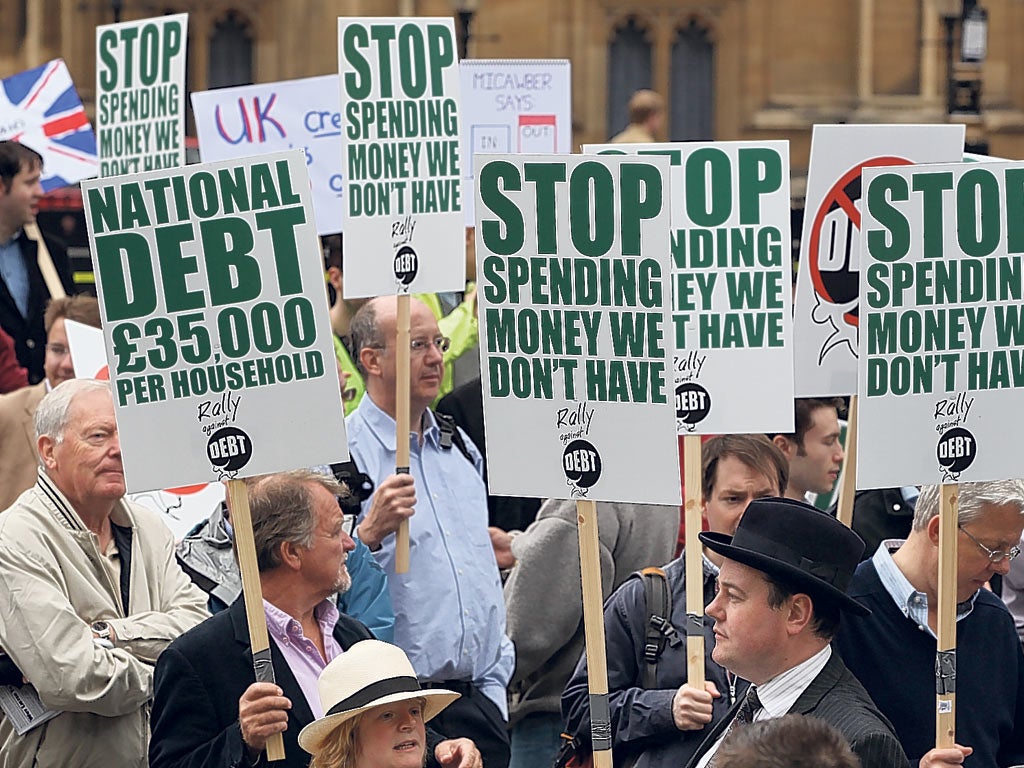Government refuses to cut high charges
An official review of credit has given the green light to excessive interest.

Your support helps us to tell the story
From reproductive rights to climate change to Big Tech, The Independent is on the ground when the story is developing. Whether it's investigating the financials of Elon Musk's pro-Trump PAC or producing our latest documentary, 'The A Word', which shines a light on the American women fighting for reproductive rights, we know how important it is to parse out the facts from the messaging.
At such a critical moment in US history, we need reporters on the ground. Your donation allows us to keep sending journalists to speak to both sides of the story.
The Independent is trusted by Americans across the entire political spectrum. And unlike many other quality news outlets, we choose not to lock Americans out of our reporting and analysis with paywalls. We believe quality journalism should be available to everyone, paid for by those who can afford it.
Your support makes all the difference.Debt campaigners hit out at the government this week after it ignored calls to cap excessive interest rates on credit cards and payday loans.
The Department for Business, Innovation and Skills and the Treasury announced measures this week aimed at improving consumer credit. Part of its review covered current accounts (see Five Questions on page 63) but hopes for a crackdown on legal loan sharks that charge interest rates of up to 4,000 per cent were dashed.
"The review is not good news for millions of vulnerable people in Britain now struggling with debt as the cost of living rises," stormed the Labour MP Stella Creasey, who has led a parliamentary campaign against high interest charges and unscrupulous payday lenders.
"The government has backtracked on commitments they made in the coalition agreement to tackle unfair bank charges and to cap excessive interest rates on credit cards and store cards," she claimed. "By refusing to act on these charges the Government is doing nothing to cut off the financial food chain that is feeding illegal and legal loan sharking."
The Consumer Finance Association (CFA) – which represents payday loan companies – is against a cap on the total cost of credit. It says that caps would not make loans cheaper. "Instead a cap would make loans unavailable, driving more people into the hands of unregulated illegal lenders," said John Lamidey of the CFA.
But Mike O'Connor, chief executive of watchdog Consumer Focus, pointed out that payday loans is now a billion pound industry. "Regulation is not strong enough in this market and reform is needed to prevent consumers getting caught in debt traps," he said.
"We agree that the current voluntary code of practice needs much strengthening. Our evidence shows the Government will need to ensure the code includes limits on the number of loans and proper affordability and credit checks."
Consumer Focus is also concerned about the marketing, sales and debt collection practices of some payday loan companies. It said there was evidence that several rogue operators were not sticking even to the current weak rules on this type of lending.
"We would like to see sensible safeguards put in place to stop payday loan users from getting into spiralling debt," said Mike O'Connor. "Top of the list would be limiting the number of loans, or roll-overs, that borrowers can take out in a year to five. We are also calling on banks to do more to provide short-term loans to cash-strapped consumers and be less opaque about their overdraft fees and charges."
In the last month , Britons have increased debts by £629m. Meanwhile the Office of Budget Responsibility predicts that by 2015, households will have over £2 trillion of debt.
Join our commenting forum
Join thought-provoking conversations, follow other Independent readers and see their replies
Comments